Cheese and Guinness Bread; rich and tasty beer and cheese bread, made with everyone’s favourite Irish stout and some strong English cheddar, perfect for soups, lunch platters or rustic sandwiches.
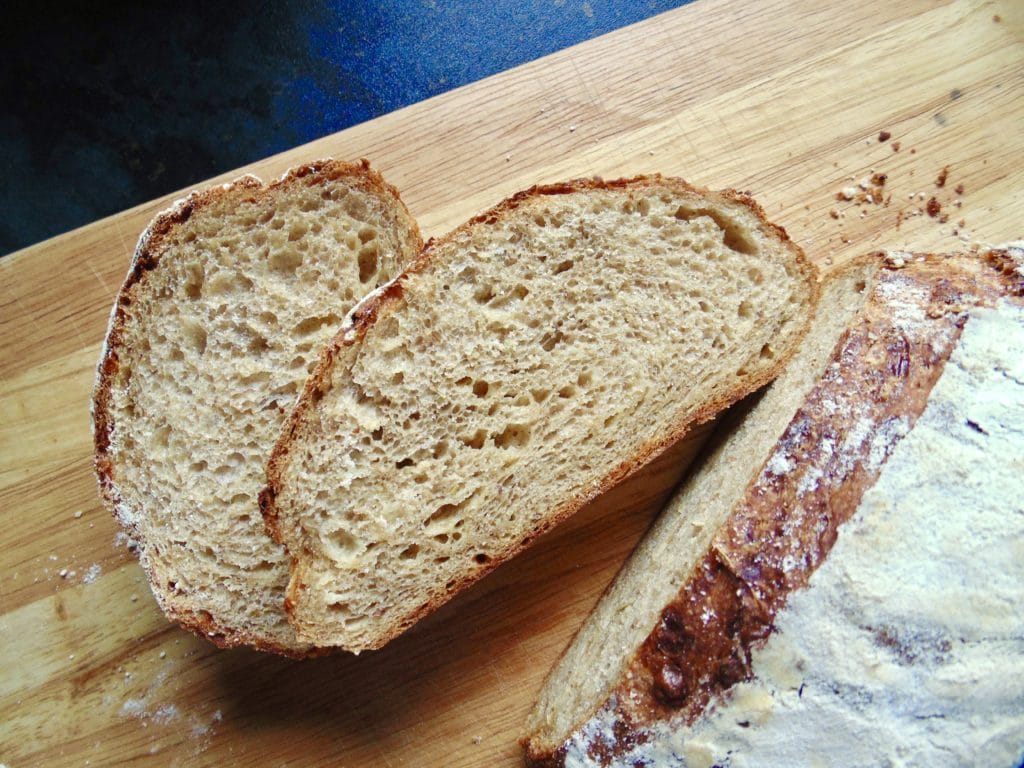
What’s better than freshly baked bread?
Freshly baked bread with cheese AND beer! DUH.
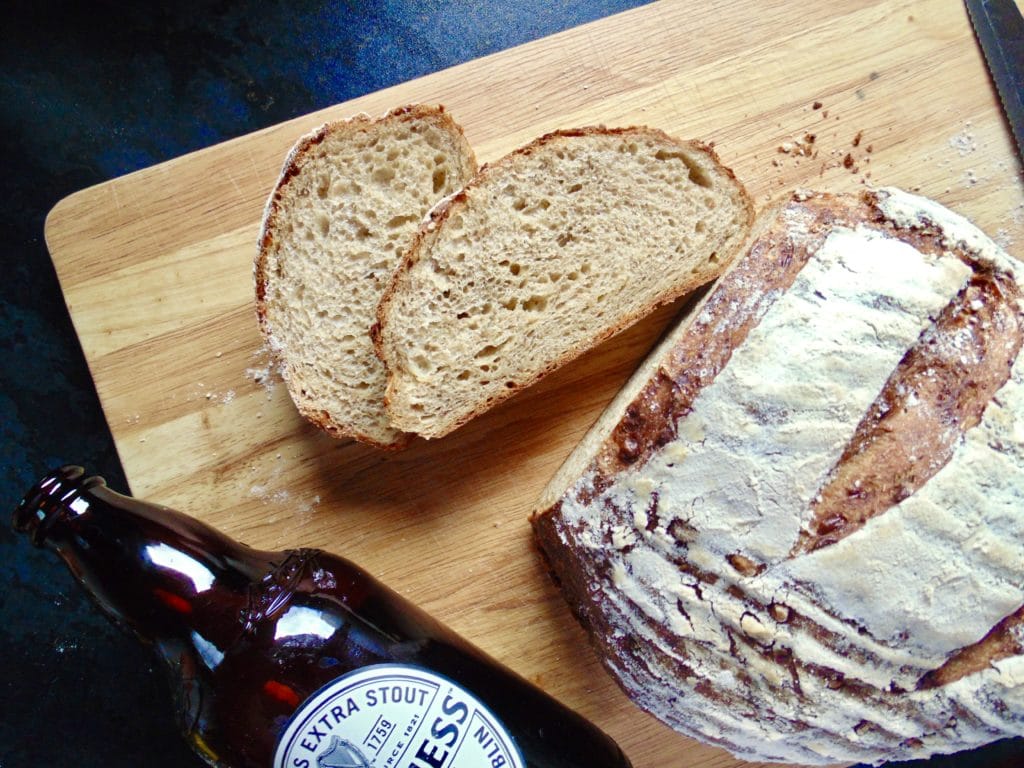
Bread doesn’t get enough love nowadays. With wraps, rice cakes, low carb and low calorie substitutes, and not-always-necessary gluten free alternatives filling supermarket shelves, bread is becoming an indulgence rather than a staple for many. That sucks.
Bread has long been a dietary staple for countries around the world, but the mass-produced blander breads our Western palates have become used to, are no longer the fresh and delicious flavour we once knew.
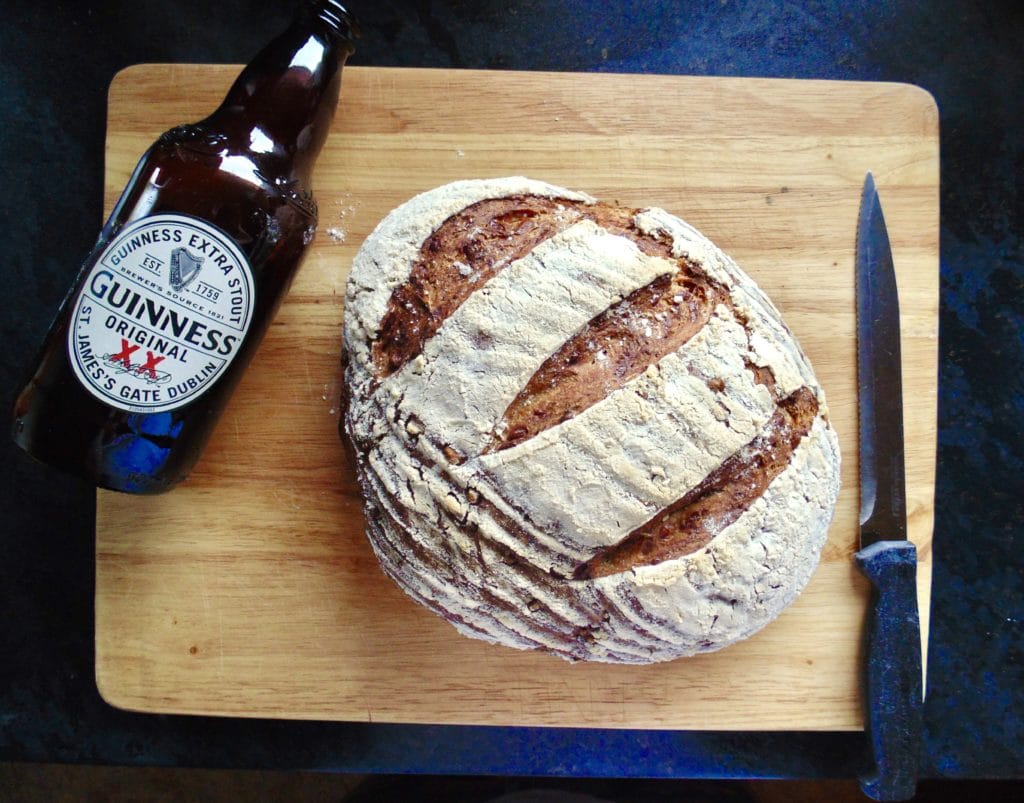
Now don’t get me wrong, I bloody love a loaf of sliced white, and a good seeded brown supermarket bread can be great too. My point is, homemade bread is just ALWAYS better! You can flavour it with anything you want, slice it as thickly or thinly as you want, and you get to feel super smug because you baked your own loaf of bread!
Not convinced? Throw some beer and cheese in it and you might be.
This Cheese and Guinness bread may sound a bit mad, or even a bit gross for those with picky tastes, but TRUST ME it is damn delicious. Crisp chewy crust, super fluffy centre and a wonderfully rich and rustic taste of Irish stout beer and strong English cheddar cheese. I’m drooling again already.
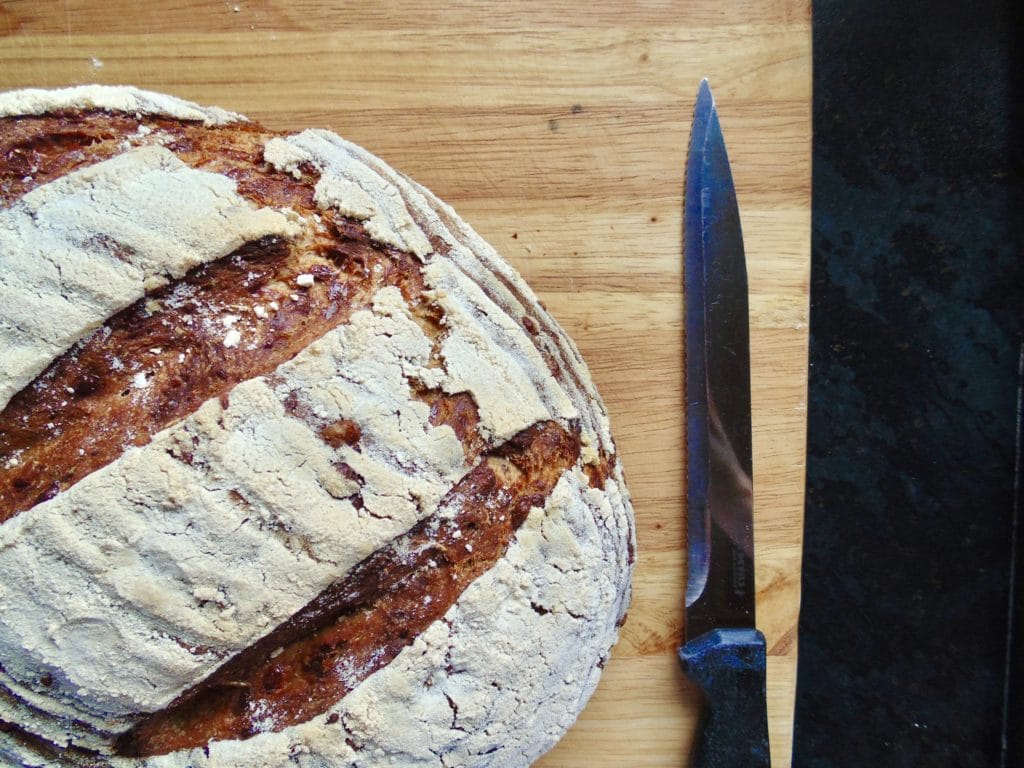
This bread is perfect for dunking in soups, slicing up for sandwiches or just devouring with butter and some more cheese! We ate it recently with my Cheddar Parsnip Apple Soup, and it was amazing.
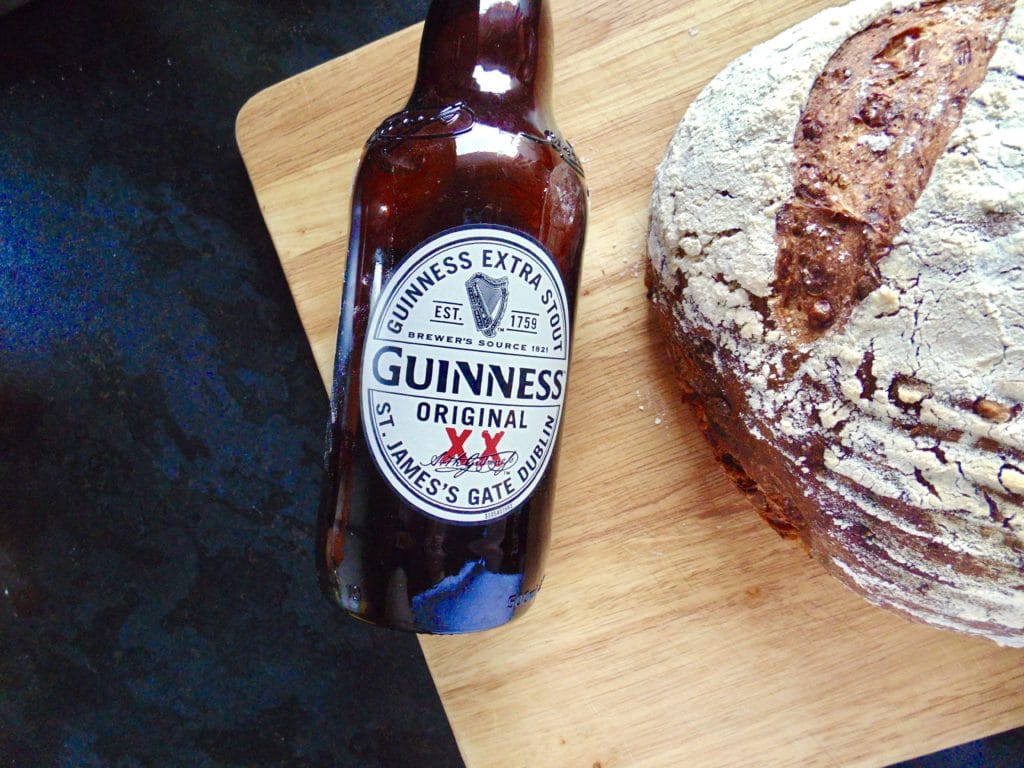
To make this tasty Cheese and Guinness Bread, start by tipping white and rye bread flours, salt and yeast into a large bowl. Try to keep the yeast and salt on separate sides of the bowl, as they can affect the rise of the bread otherwise!
Add the brown sugar, rosemary, mustard, Guinness and water.
Stir everything together until you have a dough that isn’t too dry or too sticky.
Using either a standing mixer or just using your hands, knead your dough for 10-12 minutes until it is smoother and more stretchy. I tend to just rough mine around, slapping, rolling and kneading it for 10 minutes, and that usually does the trick!
Once kneaded, place the dough back into the bowl, cover the bowl with some clingfilm and leave it to sit for about 1 hour or until it has doubled in size. A warmer room can speed up the process.
Once risen, tip the dough out onto a lightly floured surface and use your fists to punch it out into a flat pancake.
Sprinkle the grated cheese all over the dough. Isn’t it beautiful?
Roll up the dough and knead it again for about a minute, just to incorporate all the cheese throughout.
To shape the dough for a loaf tin: use your hands to pull two sides out and fold back into the centre, then stretch out the other two sides and fold these back into the centre. Then simply roll the dough up into a log, and place it seam-side-down into a greased loaf tin.
To shape the dough into a ball: use your hands to pull two sides out and fold back into the centre, then stretch out the other two sides and fold these back into the centre. Flip the dough over and then simply turn the dough in a circle on the worktop using your hands, tucking the sides in and downward as you go, this should produce a nice cob shaped loaf when baked.
To rise in a loaf tin: simply leave the dough for a further hour or until nearly doubled in size again.
To rise on a tray: simply place your ball of dough onto a greased tray and leave it for another hour to become nearly doubled in size again.
Meanwhile, preheat your oven – your oven may have a special setting for bread-baking.
Once risen, score the bread any way you like with a sharp knife – this helps the bread rise evenly.
Bake the bread in your preheated oven.
To bake in a loaf tin: Bake for 20 minutes, then carefully remove the loaf from the tin and bake for a further 20 minutes on a tray or until risen, golden and hollow-sounding when tapped.
To bake on a tray: Bake for 40 minutes or until risen, golden and hollow-sounding when tapped.
Once baked, allow the Cheese and Guinness Bread to cool completely on a wire rack.
I hope that if you make this, you enjoy it as much as we did!
Scroll down for the full recipe for this Cheese and Guinness bread.
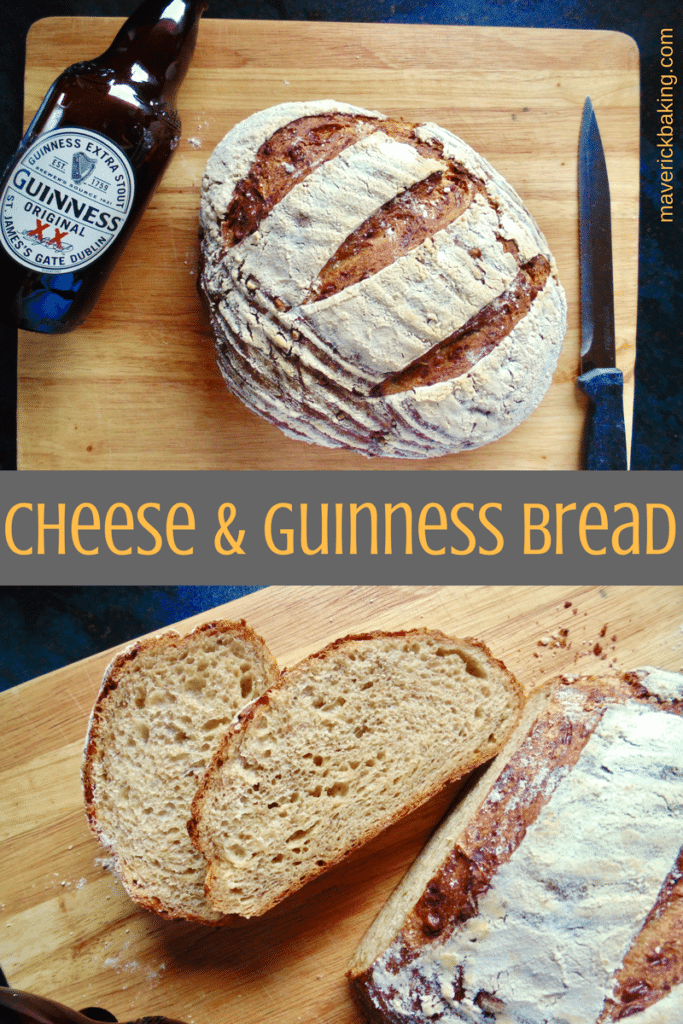
Guinness Cheddar Bread
Guinness Cheddar Bread; rich and tasty beer and cheese bread, made with everyone’s favourite Irish stout and some strong English cheddar, perfect for soups, lunch platters or rustic sandwiches.
Notes
BE A MAVERICK: though cheddar is good, any strong hard cheese would be a great ingredient in this bread!
Ingredients
- 350g (2 1/3 cups) strong white bread flour
- 150g (1 cup) rye flour or strong wholemeal bread flour
- 10g salt
- 7g packet of fast-action dried yeast
- 1 tbsp brown sugar
- 1 tsp dried rosemary
- 1 tsp English or Dijon mustard
- 200ml (3/4 cup) Guinness (or another stout, or dark beer)
- 160ml (2/3 cup) lukewarm water
- 120g (1 cup, not packed down) extra mature cheddar cheese, grated
Instructions
- Tip your flours, salt and yeast into a large bowl. Try to keep the yeast and salt on separate sides of the bowl, as they can affect the rise of the bread otherwise!
- Add the brown sugar, rosemary, mustard, Guinness and water.
- Stir everything together until you have a dough that isn’t too dry or too sticky.
- Using either a standing mixer or just using your hands, knead your dough for 10-12 minutes until it is smoother and more stretchy. I tend to just rough mine around, slapping, rolling and kneading it for 10 minutes, and that usually does the trick!
- Once kneaded, place the dough back into the bowl, cover the bowl with some clingfilm and leave it to sit for about 1 hour or until it has doubled in size. A warmer room can speed up the process.
- Once risen, tip the dough out onto a lightly floured surface and use your fists to punch it out into a flat pancake.
- Sprinkle the grated cheese all over the dough.
- Roll up the dough and knead it again for about a minute, just to incorporate all the cheese throughout.
- To shape the dough for a loaf tin: use your hands to pull two sides out and fold back into the centre, then stretch out the other two sides and fold these back into the centre. Then simply roll the dough up into a log, and place it seam-side-down into a greased loaf tin.
- To shape the dough into a ball: use your hands to pull two sides out and fold back into the centre, then stretch out the other two sides and fold these back into the centre. Flip the dough over and then simply turn the dough in a circle on the worktop using your hands, tucking the sides in and downward as you go, this should produce a nice cob shaped loaf when baked.
- To rise in a loaf tin: simply leave the dough for a further hour or until nearly doubled in size again.
- To rise on a tray: simply place your ball of dough onto a greased tray and leave it for another hour to become nearly doubled in size again.
- Meanwhile, preheat your oven – 220 C / 200 C fan / 425 F / gas mark 7 – your oven may have a special setting for bread-baking.
- Once risen, score the bread any way you like with a sharp knife – this helps the bread rise evenly.
- Bake the bread in your preheated oven.
- To bake in a loaf tin: Bake for 20 minutes, then carefully remove the loaf from the tin and bake for a further 20 minutes on a tray or until risen, golden and hollow-sounding when tapped.
- To bake on a tray: Bake for 40 minutes or until risen, golden and hollow-sounding when tapped.
- Once baked, allow the bread to cool completely on a wire rack.
- Enjoy!
You may also like…
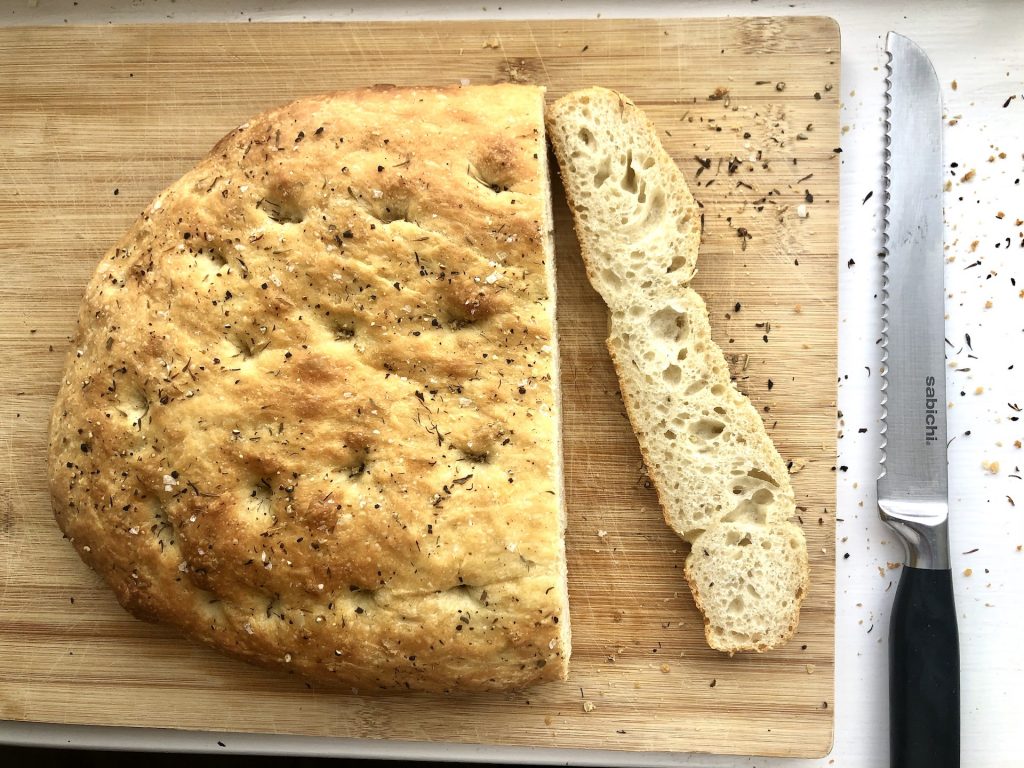
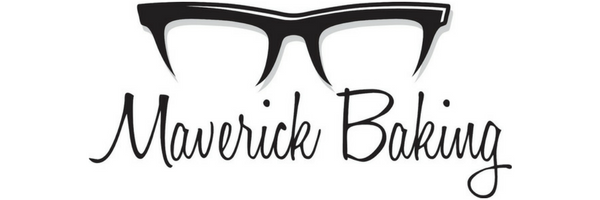
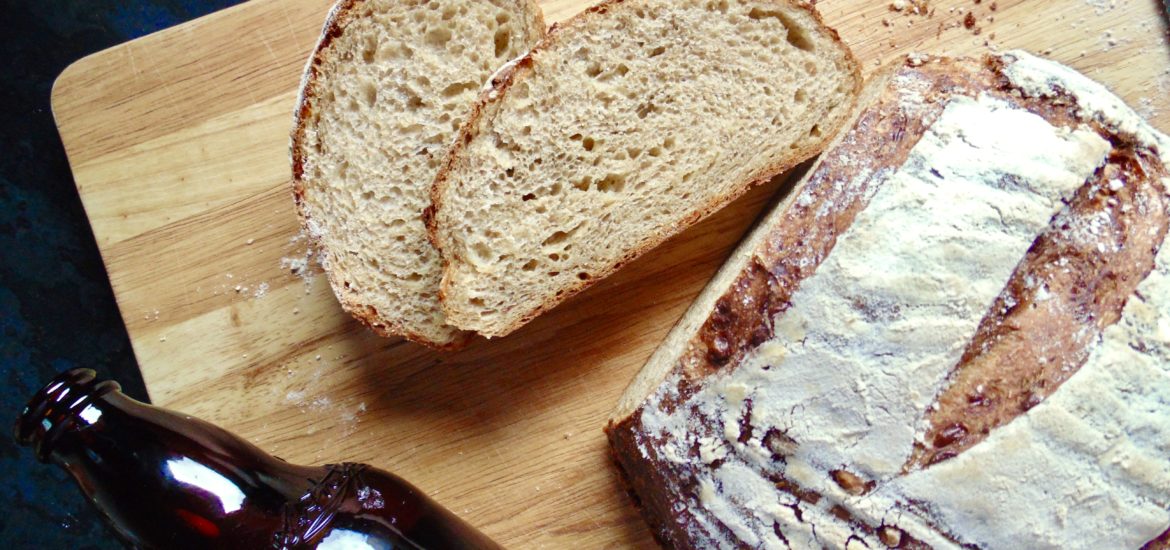

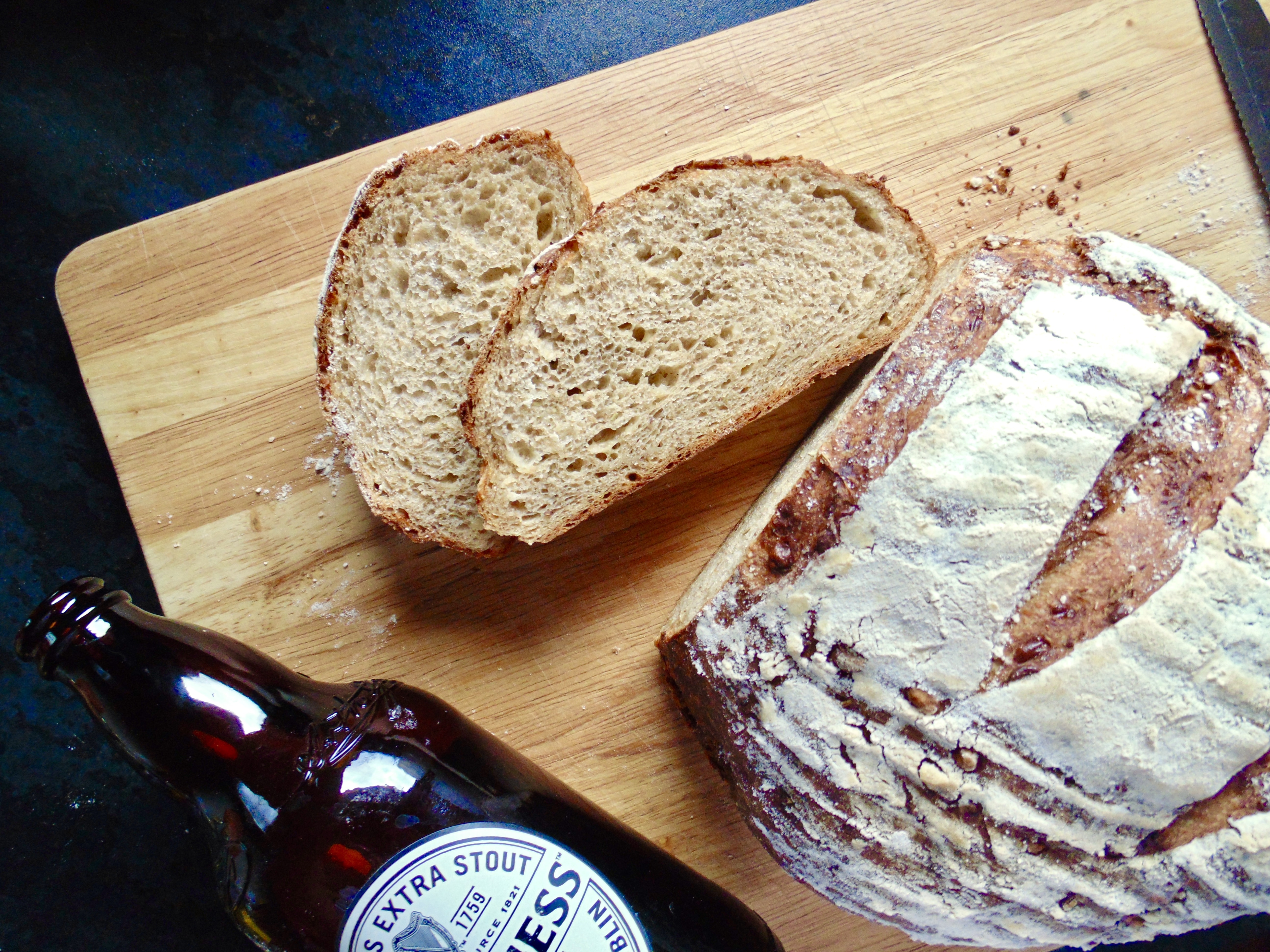
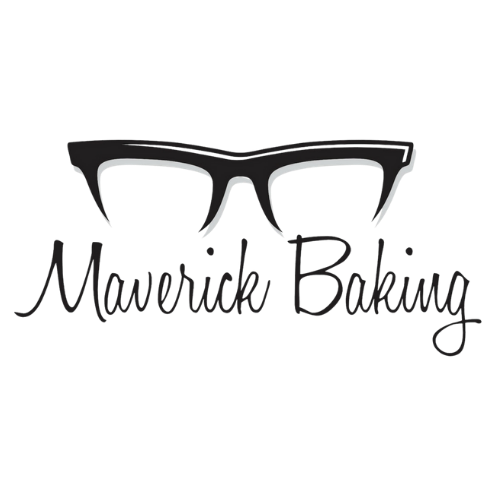
Absolutely outrageous recipe – thank you so much for sharing! I used an 80/20 mix of BF and Khorasan, 50g of my regular sourdough starter in place of the yeast, shredded Asiago cheese and 1 tsp each of Rosemary, Thyme and Sage. Amazing tang from the Asiago – and that trio of herbs! Wow. This one is going on my regular rotation for sure. Thank you again!